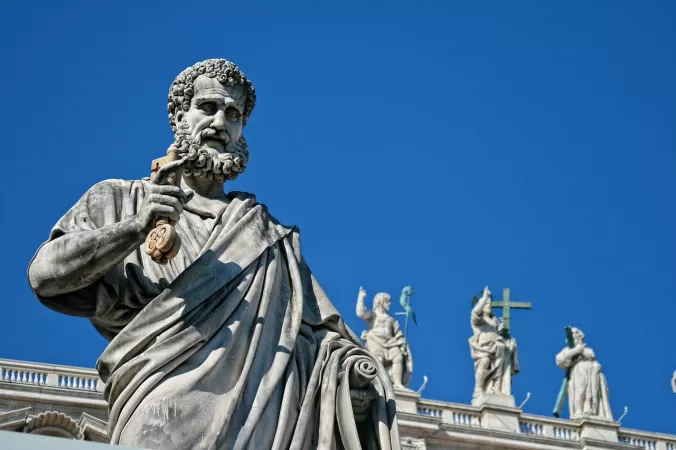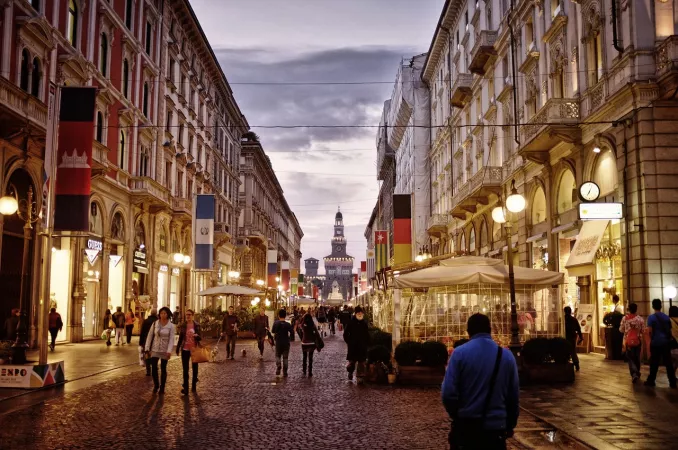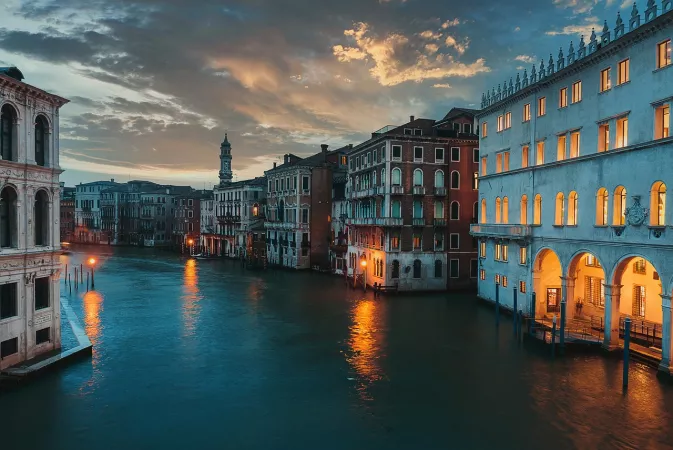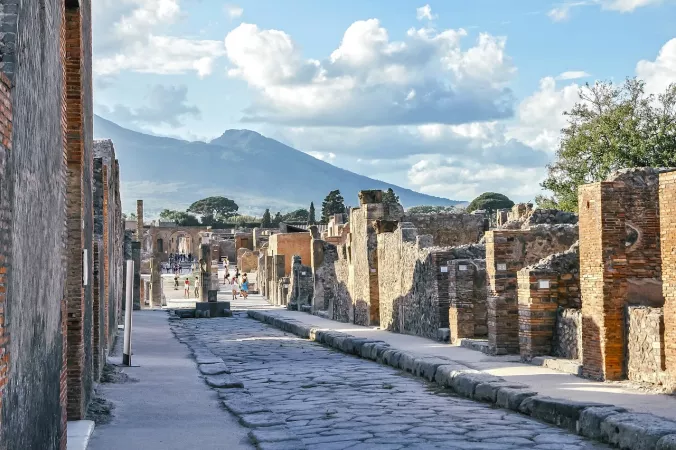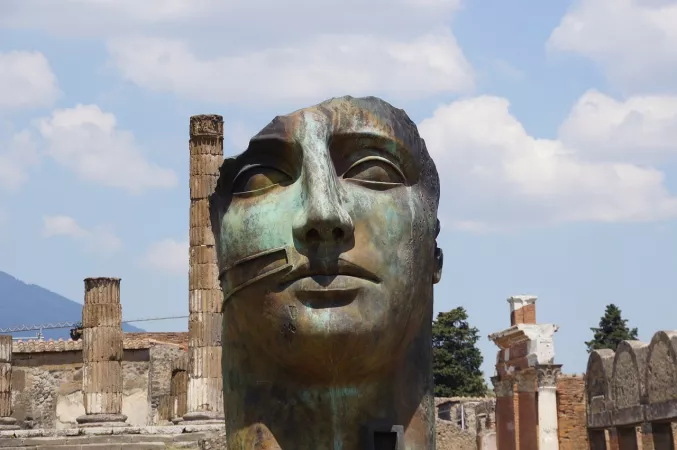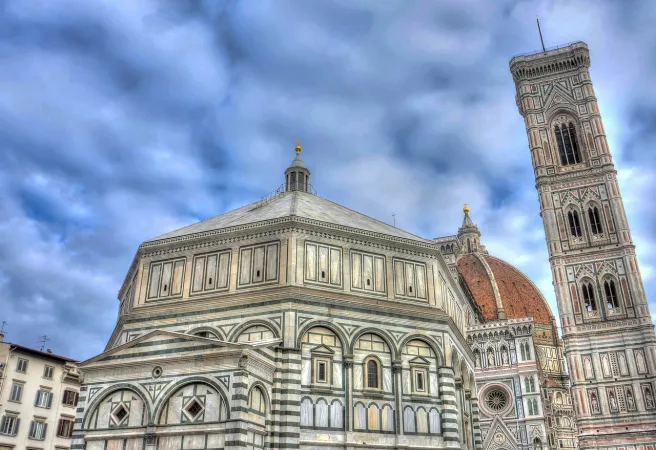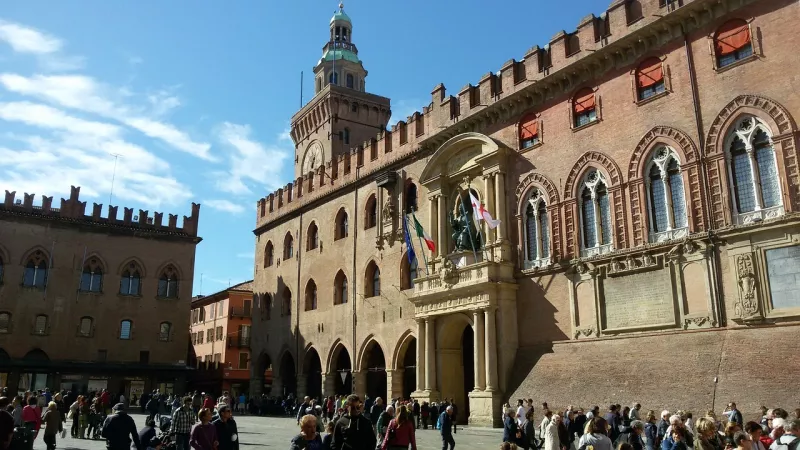
Bologna Travel Guide
Bologna, a city in northern Italy, is the capital of the Emilia-Romagna region. Known for its rich history, vibrant culture, and culinary excellence, Bologna is a popular destination for travelers seeking an authentic Italian experience. The city boasts a well-preserved medieval center, stunning architecture, and a lively atmosphere that attracts visitors from around the world. Bologna is also home to the oldest university in Europe, adding to its historical significance.Top Attractions in Bologna
1. Piazza Maggiore 2. Two Towers of Bologna 3. Basilica of San Petronio 4. Archiginnasio of Bologna 5. Mercato di MezzoBologna is Famous for
Its rich culinary tradition, including the famous Bolognese sauce and traditional dishes like tortellini and mortadella.Top Attractions in Bologna
- Piazza Maggiore - Two Towers of Bologna - Basilica of San Petronio - Archiginnasio of Bologna - Mercato di MezzoWhat's Great about Travelling to Bologna?
- Authentic Italian experience - Rich history and culture - Culinary delights - Lively atmosphere - Beautiful architectureWhat's Not So Great about Travelling to Bologna?
- Crowded tourist areas - Limited English spoken in some places - Summers can be hot and humid - Some areas may be less accessible for people with mobility issuesTravel Tips for Bologna
- Check visa requirements before traveling - Use public transportation or walk in the city center - Be cautious of pickpockets in crowded areas - Try local specialties at traditional trattorias - Respect local customs and traditionsImportant Bologna trip information
- Ideal Duration: A minimum of 3-4 days to explore the city and its surroundings.
- Best Time to Visit: Spring (April to June) and Fall (September to October) for pleasant weather.
- Nearby Airports and Railway Stations: Bologna Guglielmo Marconi Airport and Bologna Centrale railway station.
Top 26 Places to visit in Bologna
FAQ's on Bologna
Q1: What is the best time to visit Bologna?
The best time to visit Bologna is during the spring (April to June) and fall (September to October) when the weather is mild, and the city is less crowded. These seasons also coincide with local festivals and events, offering a vibrant experience for visitors. Summer can be hot and crowded, while winter can be chilly with occasional rain. Consider your preferences for weather and crowds when planning your trip to Bologna.
Q2: Do I need a visa to travel to Bologna?
Travelers from the EU, EEA, and many other countries do not need a visa to visit Bologna for stays up to 90 days. However, it's essential to check the specific visa requirements based on your nationality before traveling. Make sure your passport is valid for at least six months beyond your intended stay. For longer stays or other visa types, consult the Italian consulate or embassy in your country.
Q3: What are the must-visit attractions in Bologna?
Bologna, known for its rich history and culinary delights, offers a range of must-visit attractions. Explore the historic Piazza Maggiore, climb the Asinelli Tower for panoramic views, visit the University of Bologna, the oldest in the world, and discover the unique porticos of the city. Don't miss the Basilica of San Petronio, the Two Towers, and indulging in the local cuisine at the Mercato di Mezzo. Take a day trip to nearby towns like Modena or Parma for a taste of the Emilia-Romagna region.
Q4: Is Bologna a safe place to travel?
Bologna is generally a safe city for travelers, with low crime rates. However, like any other destination, it's essential to stay vigilant, especially in crowded tourist areas to avoid pickpocketing. Certain areas may have higher petty crime levels, so it's advisable to be cautious. Respect local laws and customs, and keep your belongings secure. In case of any emergency, dial 112 for police assistance. By taking common-sense precautions, you can enjoy a safe and pleasant trip to Bologna.
Q5: What is the local currency in Bologna and can I use credit cards?
The local currency in Bologna, like the rest of Italy, is the Euro (EUR). Credit and debit cards are widely accepted in most shops, restaurants, and hotels in Bologna. ATMs are also readily available throughout the city for cash withdrawals. Notify your bank before traveling to ensure your cards will work overseas and inquire about any foreign transaction fees. It's advisable to carry some cash for small purchases or in case you encounter establishments that do not accept cards.
Q6: What is the local cuisine like in Bologna?
Bologna is a food lover's paradise, renowned for its rich culinary tradition. Indulge in local specialties like tagliatelle al ragù (Bolognese sauce), tortellini in brodo (stuffed pasta in broth), and mortadella, the original Bologna sausage. Visit traditional markets like Mercato di Mezzo or Mercato delle Erbe to sample fresh produce, cheeses, and meats. Don't miss the opportunity to savor authentic gelato and enjoy aperitivo, a pre-dinner drink with snacks. Dietary considerations like vegetarian or gluten-free options are available in most restaurants, ensuring a delightful culinary experience for all visitors.
Q7: What transportation options are available in Bologna?
Bologna offers various transportation options for getting around the city and exploring the surrounding areas. The city has an efficient public transport system consisting of buses and a light rail network, providing easy access to major attractions. Taxis are also available but can be more expensive. For those who prefer flexibility, car rental services are accessible at the airport and downtown locations. Bologna is a walkable city, so exploring on foot or renting a bike is a popular and eco-friendly choice. Additionally, the central location of Bologna makes it a convenient hub for train travel to other Italian cities and regions.
Q8: Are there any cultural norms or etiquette I should be aware of when visiting Bologna?
When visiting Bologna, it's essential to respect local customs and etiquette to have a positive experience. Italians value personal space and may greet with a light handshake or cheek kiss among acquaintances. Dress modestly when visiting religious sites and avoid wearing revealing clothing in public places. Tipping is not obligatory in Italy, as a service charge is often included in the bill. However, rounding up the bill or leaving a small tip is appreciated for exceptional service. Learn a few basic Italian phrases to show respect for the local language. Embrace the leisurely pace of life in Bologna, enjoy meals slowly, and engage in conversations with locals to immerse yourself in the rich culture of the city.
Q9: I am a travel agent. How can I buy travel leads of Bologna?
Register yourself as a travel agent at agents.tripclap.com and then you can buy travel leads to Bologna once your account is approved. For more details contact our support team at +91-8069186564 or support@tripclap.com

